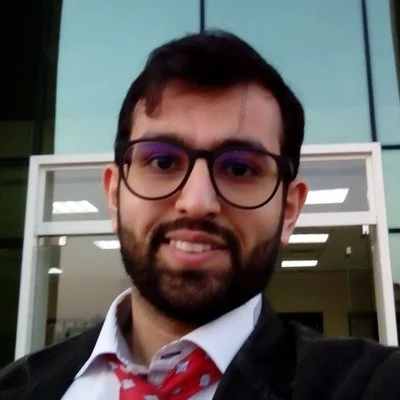Introduction to Western Philosophy
Course

About The Course
Explore the foundational branches of Western Philosophy in this 12-week course tailored for Muslim students. Delve into Metaphysics, Epistemology, Ethics, Aesthetics, and Logic, gaining insights into their core concepts and relevance. Conclude with a special focus on the Philosophy of Science, showcasing how foundational philosophy branches extend into specialized subjects. Designed for both novices and enthusiasts, this course offers a gateway to critical thinking and the rich world of philosophical ideas.
Course Team
At A Glance
 12 Live Online Sessions
12 Live Online Sessions  Duration: 12+ Weeks
Duration: 12+ Weeks  Saturdays, 5 PM - 6:30 PM (London, UK)
Saturdays, 5 PM - 6:30 PM (London, UK)  Video Recordings Available
Video Recordings Available  Access to Mobile App
Access to Mobile App  Certificate
Certificate  From £17.49/Month (For 4 Months)
From £17.49/Month (For 4 Months)
Enroll Now
- Starts on 6th January 2024
- Course Fee:
Pay in Full:£79.99£69.99
Pay in 4 Installments: £17.49 per month - Registration Deadline: 5th January 2024
Al Balagh Scholarship
AlBalagh Scholarship is available for learners who cannot afford the fee. Learn More and Apply
Course Overview
Dive into the captivating world of Western Philosophy with this comprehensive course tailored for Muslim students. This program offers a unique blend of foundational knowledge and critical exploration, guiding students through the primary branches of philosophy: Metaphysics, Epistemology, Ethics, Aesthetics, and Logic.
Learning Outcomes
- Comprehensive Understanding of Philosophical Branches: By the end of the course, students will be able to identify and explain the primary branches of philosophy, namely Metaphysics, Epistemology, Ethics, Aesthetics, and Logic, and understand their significance in shaping philosophical discourse.
- Critical Analysis and Evaluation: Students will develop the ability to critically analyse and evaluate philosophical arguments, theories, and concepts, fostering a deeper understanding of various philosophical positions and their implications.
Here is the course outline:
Welcome Aboard: Course IntroductionDelve into Metaphysics, Epistemology, Ethics, Aesthetics, and Logic, gaining insights into their core concepts and relevance. |
IT- OrientationThis IT Orientation explains how you can learn essential information and discover, connect, navigate this portal and build a foundation for a successful journey ahead. |
Session 1- Introduction to Philosophy and its BranchesAn exploration of fundamental questions about existence, knowledge, ethics, and reality through branches like metaphysics, epistemology, and ethics. |
Session 2- Metaphysics - The Nature of RealityMetaphysics delves into reality's fundamental nature, exploring existence, substance, causation, and the nature of being and existence itself. |
Session 3- Metaphysics - Free Will vs. DeterminismMetaphysics grapples with the debate between free will and determinism, questioning whether human actions are predetermined or involve choice. |
Session 4- Epistemology - The Sources of KnowledgeEpistemology explores how we know things, examining sources like perception, reason, memory, testimony, and introspection for understanding reality. |
Session 5- Epistemology - The Limits of Human UnderstandingEpistemology questions the extent of human knowledge, addressing uncertainties, boundaries, and inaccessible areas within our understanding of reality. |
Session 6- Ethics - Moral Foundations: Utilitarianism vs. Deontological EthicsEthics compares actions' moral worth: Utilitarianism seeks maximal happiness, while Deontological Ethics emphasizes duty and moral principles' adherence. |
Session 7- Ethics - Virtue Ethics and the Pursuit of CharacterVirtue Ethics centers on cultivating moral virtues, guiding ethical actions through character development for a flourishing and fulfilling life. |
Session 8- Aesthetics - The Philosophy of Art and BeautyAesthetics examines art's nature, defining beauty, evaluating artistic experiences, and understanding their impact on perception and culture. |
Session 9-Aesthetics - The Impact of Art on SocietyAesthetics explores art's societal influence, shaping culture, provoking change, and reflecting values, identities, and social perspectives. |
Session 10- Logic - The Structure of ArgumentsLogic studies argument forms, distinguishing valid from invalid reasoning by analyzing the structure, ensuring coherence and soundness in reasoning. |
Session 11 & 12 (Final) - Logic - Critical Thinking in the Modern World
Online
Session 11: Logic - Part-2 Logic fosters critical thinking, aiding in analyzing information, problem-solving, and making rational decisions amidst complex modern challenges. Session 12: Special Philosophical Subjects - Philosophy of Science Philosophy of Science explores scientific knowledge, methods, and the nature of reality, scrutinizing scientific theories and their implications. |
Completion
The following certificates are awarded when the course is completed:
 |
Introduction to Western Philosophy |




(3).png?lmsauth=401bc9a751a1384a01d518931aef05980231a962)
.jpeg?lmsauth=20c38b738ae72dadfffc864a114a427f837cf07e)

